How to Check the Quality of Used Cars in Saudi Arabia?
The decision to purchase a used car in Saudi Arabia requires careful inspection and in-depth knowledge. With the variety of offers and differing car conditions, it becomes essential to ensure every technical and legal aspect is checked before buying. In this article, we will review how to verify the quality of a used car inside and out, learn about the importance of the electrical system, vehicle documents, and the main official platforms that assist you in making a safe and reliable purchase decision.
Browse used car offers in Saudi Arabia
Inspection of the Used Car Exterior
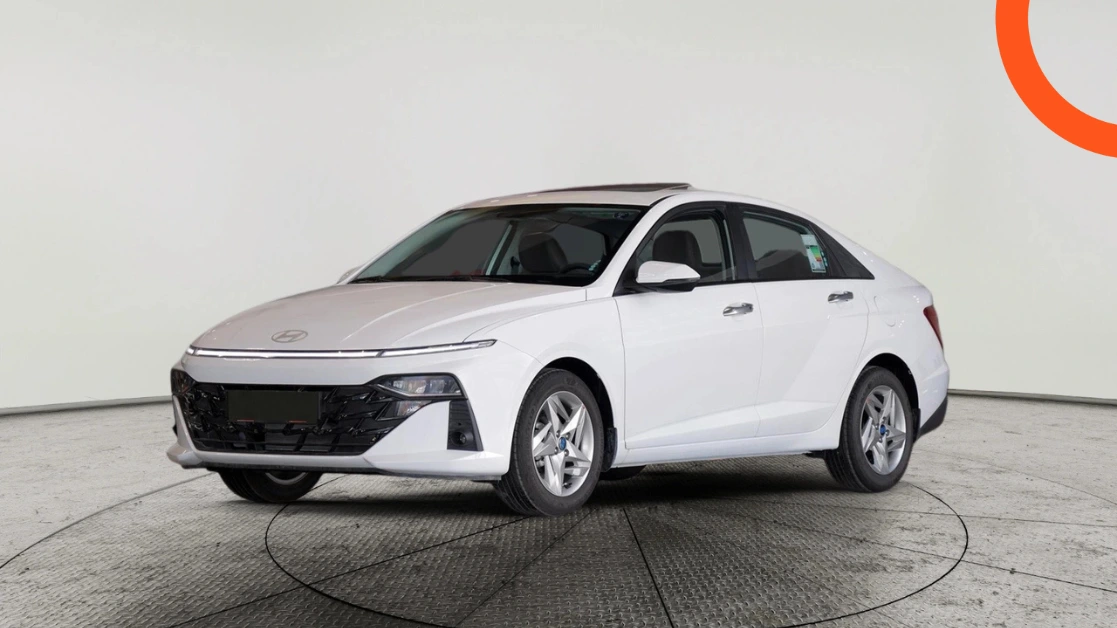
The assessment of the car starts from the outside, where attention should be paid to the following:
- Tires and Wheel Alignment: Check for even tire wear, as uneven wear indicates potential issues in the suspension system or wheel balance.
- Lights: Ensure all lights (front, rear, indicators, and fog) are operational, and that their covers are intact and not cracked.
- Exterior Body Condition: Inspect the car for scratches, rust, or dents that may affect its value and resale potential.
- Paint Quality: Monitor any color discrepancies between parts of the car, which may reveal previous repairs due to accidents.
- Exhaust System and Chassis: Check the chassis from underneath for rust or structural damage, and don’t forget to inspect the exhaust pipe for holes or leaks.
Engine Inspection and Internal Components
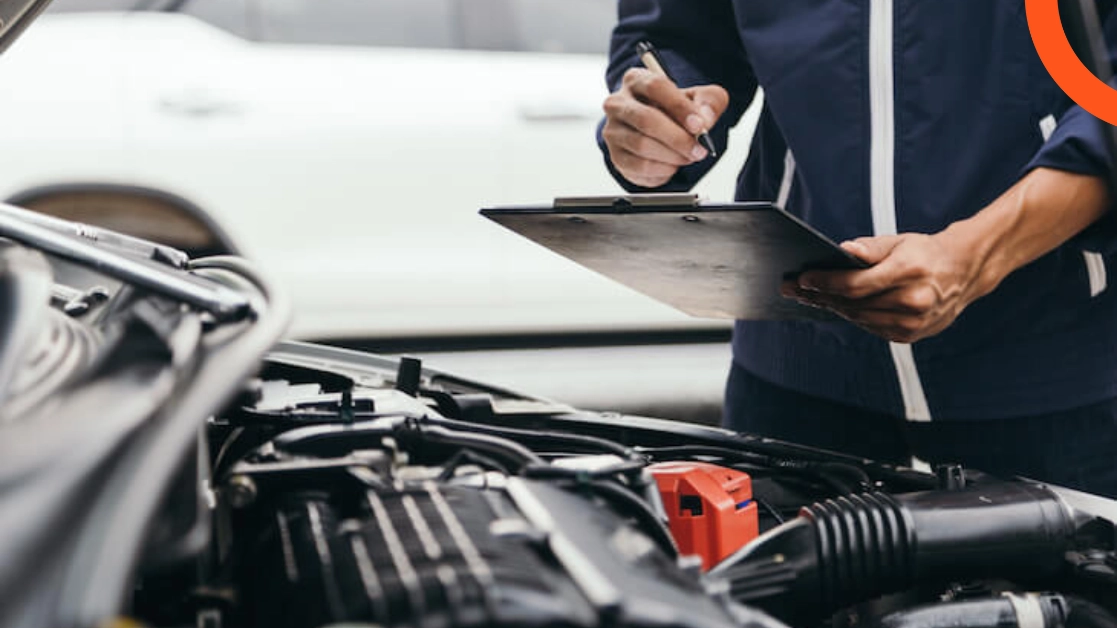
The performance of the engine is one of the most significant indicators of the car’s condition; therefore, check the following:
- Engine: Verify its cleanliness and check for any oil or coolant leaks, and look for carbon buildup around engine parts.
- Fluid Levels: Inspect the level of engine oil, brake fluid, transmission fluid, and coolant, as all indicate the previous owner’s maintenance care.
- Battery: Ensure the battery’s age and the terminals’ condition are free from corrosion or rust, and that connections are tight and dry.
Internal Inspection of the Car
The interior reflects the level of use and care of the car:
- Steering System: Ensure that the steering wheel operates smoothly without shaking or resistance.
- Interior Cabin: Check the condition of the seats, upholstery, windows, and flooring of the car, paying attention to any strange odors or hard-to-remove stains.
- Internal Electronics: Test the radio, information screen, navigation systems, and power windows.
- Dashboard Indicators: Watch for any warning lights, such as the check engine or brake lights.
Inspection of the Electrical System
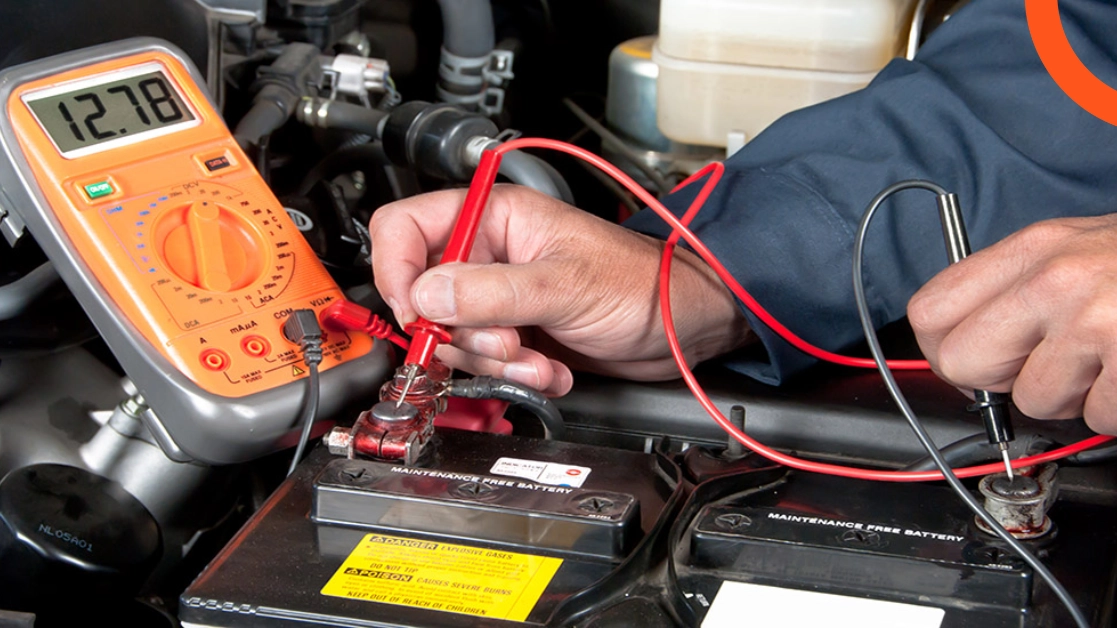
The electrical systems in modern cars have become essential and must be thoroughly inspected:
- Battery Voltage: Use a voltmeter to ensure it operates efficiently (the ideal reading is usually between 12.4 and 12.7 volts when the car is off).
- Wires and Connectors: Inspect wires for wear, cuts, or any signs of burning.
- Heating and Air Conditioning Systems: Ensure the AC works efficiently, whether cooling or heating, and observe any unusual sounds when it operates.
Ensuring the Vehicle Documents
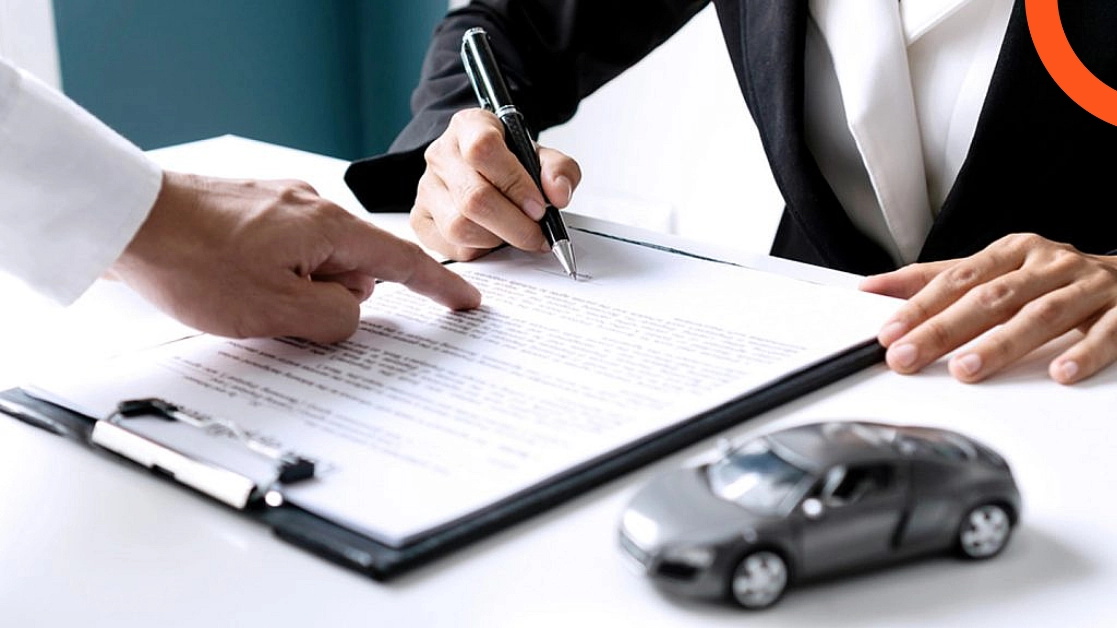
The documents are just as important as the car’s condition itself; here’s what to review:
- Service and Maintenance Records: Verify the previous owner’s commitment to routine maintenance documented in manuals or invoices.
- Vehicle Identification Number (VIN): Compare the number on the car with that in the registration form and invoices, to avoid purchasing a stolen or modified vehicle.
- Proof of Ownership: Ensure the seller is the actual owner of the car, and review the identity of both the seller and buyer.
- Driver’s License (Registration): Check its validity and ensure the chassis number, engine number, and model match.
- Periodic Technical Inspection Report: Preferably recent; it verifies the mechanical condition of the car.
- Summary Report: Obtain a “Summary” report or its equivalent from official platforms using the chassis number to check the accident history, number of previous owners, and violations.
- Insurance Certificate: Verify the presence of a valid insurance policy or ensure the possibility of issuing a new one after purchase.
- No Objection Certificate from Traffic: A document confirming that there are no unpaid violations or fines on the car.
How to Verify the Vehicle Papers?
Verifying the vehicle papers is a pivotal step to ensure the transaction is safe and avoid any legal or financial issues later. It’s not just about confirming the car’s ownership; it includes checking the maintenance history, number of previous owners, recorded accidents, insurance status, and traffic violations. Saudi Arabia provides several official digital platforms that assist the buyer in easily and reliably verifying all vehicle data before finalizing the deal, and there are numerous electronic platforms to help citizens check the papers of used vehicles before buying, including:
Muajaz Platform
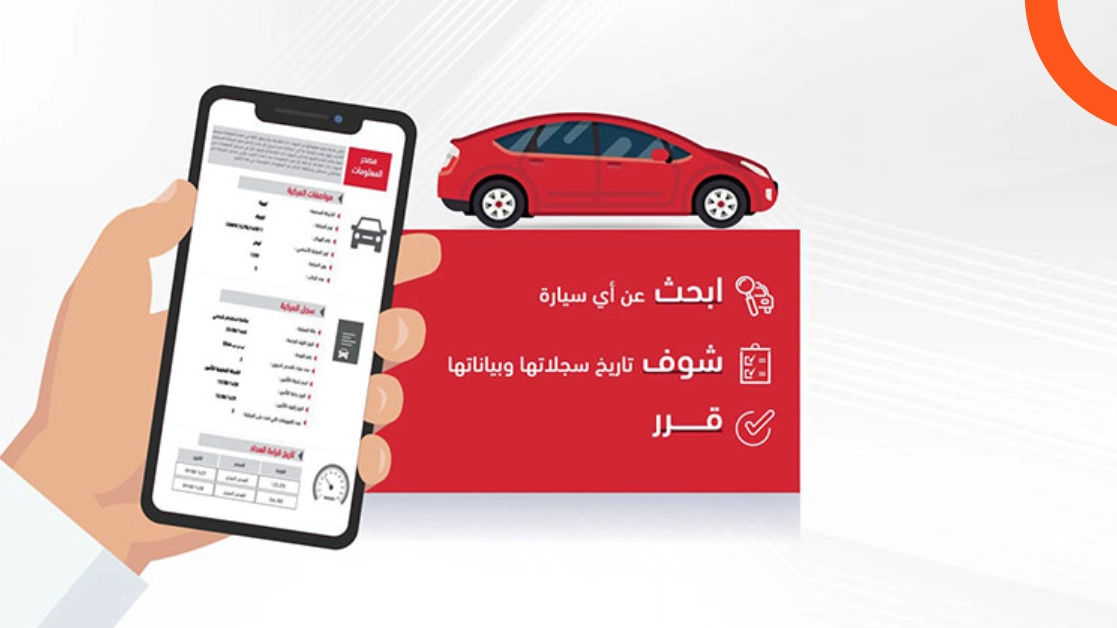
Main function: Issuing a comprehensive report on the condition and history of the used car.
The Muajaz platform is an official service linked to the vehicle’s VIN, and it is one of the most important tools for buyers when verifying the quality and safety of a used car. Through this platform, you can obtain a detailed report that includes:
- Number of previous owners of the car
- Record of confirmed accidents
- Record of maintenance at dealerships (if any)
- Number of periodic inspections
- Previous and current insurance data
- Cases of export, detention, or official use (Police – Rental – Public Transport)
The Muajaz report is considered one of the best records for knowing the true history of the car and helps you make a decision based on reliable information.
Absher Platform

Main function: Inquiry about registration status, violations, insurance, and accidents.
The Absher platform, affiliated with the Ministry of Interior, provides various services related to vehicles, allowing users to access:
- Data on the driver’s license and its validity
- Record of traffic violations committed on the car
- Insurance status, whether current or not
- Information on accidents associated with the vehicle
- Verification of official ownership transfer between seller and buyer
The Saudi Standards, Metrology and Quality Organization

Main function: Ensuring that the vehicle complies with Gulf and technical specifications.
The Saudi Standards, Metrology and Quality Organization (SASO) plays an important role in examining imported or resale used cars by verifying the vehicle’s compliance with:
- Gulf technical specifications
- Safety and environmental emissions standards
- The condition of the car concerning non-compliant modifications (such as changes to the suspension system or engine)
- Compliance of import and chassis data with what is officially recorded
Verifying the vehicle’s compliance with these standards is essential for its successful registration with traffic authorities, especially for cars imported from outside the Gulf.
The Importance of Verifying Used Car Quality

The process of inspecting used cars plays a crucial role in avoiding future problems. It also helps to uncover hidden issues, and the importance of verifying the quality of a used vehicle before purchasing lies in the following benefits:
Avoid Future Problems
Checking the quality of the car before buying helps to reveal hidden defects, such as engine problems or suspension or tire issues, which may not appear during a short test drive. A comprehensive technical inspection ensures that you are not buying a vehicle that will require significant maintenance costs later, giving you long-term peace of mind.
Ensuring Vehicle Safety
Safety comes first when choosing a car for your family or daily use. The inspection includes checking the condition of the tires, brakes, steering system, and lights. These elements are crucial for maintaining your safety and that of passengers, and any failure in them could pose a danger while driving. A well-inspected car is simply safer and more reliable.
Verifying Vehicle History
When inspecting the used car, obtaining a detailed history report is advisable, including the number of accidents, maintenance records, and the number of previous owners. This history shows whether the car has been involved in major accidents, or undergone irregular maintenance. Checking the history protects you from falling into the trap of buying a vehicle that was owned by a rental entity or was used under harsh conditions.
Determining the True Value of the Car
Through inspection, you can assess the fair price of the car based on its technical condition and exterior appearance. If defects or damages appear, you can negotiate better with the seller to get a reasonable price. Conversely, if it turns out that the car is in excellent condition, you can purchase it with confidence and at a price that reflects its quality.
Protecting Your Investment
Buying a car is a long-term investment. Inspection helps ensure that the money you pay goes to the right place, preventing you from falling into the trap of unexpected repairs. Relying on a professional inspector before buying enhances your chances of purchasing a car that lasts for years and meets your needs without issues.
Reducing Legal Risks
One aspect that some overlook is the legal risks associated with used cars. There may be non-compliant modifications, forged papers, or discrepancies in the vehicle’s VIN, and a comprehensive inspection includes verifying that serial numbers and official documents match, ensuring that the car is free of liens or legal issues.
Tips Before Buying a Used Car
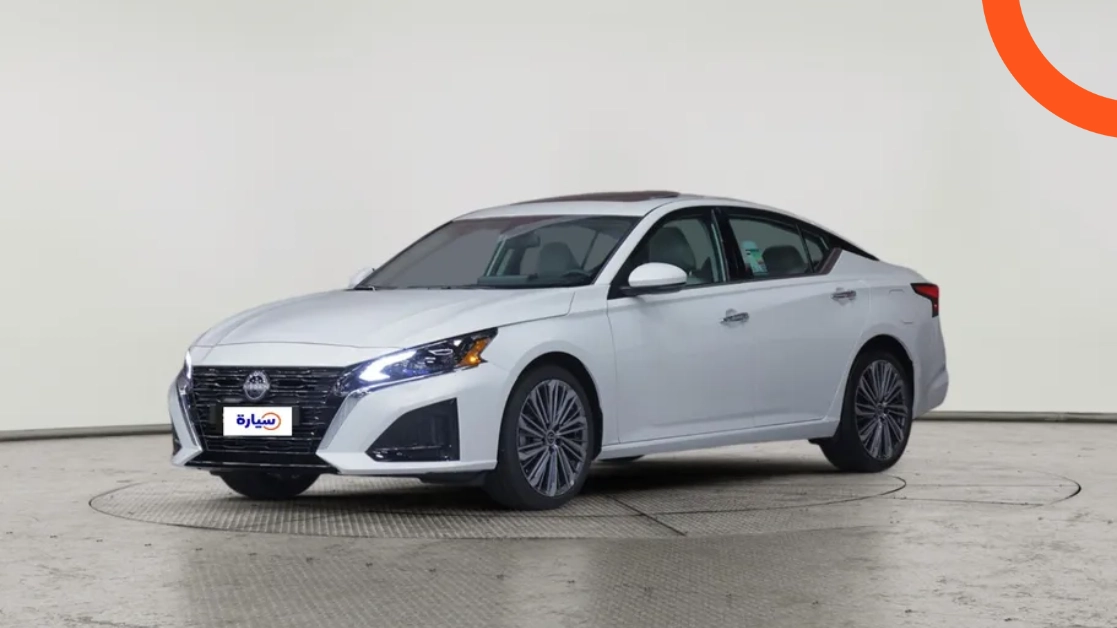
Buying a used car requires familiarity with various aspects related to periodic inspections and the vehicle’s technical record, along with some caution and planning to ensure you get the best quality. In this context, there are a set of essential tips to follow before making a purchasing decision to avoid future problems or unexpected financial losses, including:
- Gather Information: Be sure to know the average market price for the car, its general condition, and the availability of spare parts.
- Comprehensive Inspection: Carefully check the car to ensure there is no color discrepancy or hidden damages.
- Consult a Specialist: Rely on a skilled technician for a detailed examination of the car.
- Be Cautious with Low Prices: Don’t rush towards unjustified low prices that may indicate defects.
- Records of Periodic Maintenance: Check the owner’s commitment to regular maintenance.
- Mileage: Useful for estimating the extent of the car’s use.
- Test Drive: A test drive is essential to ensure comfort and quality.
- Legal Papers: Ensure the validity of ownership documents and the car’s ownership history.
- Financial Agreement: It is preferable to make payments in installments with documented legal transfer.
Frequently Asked Questions
How can I verify that used cars are free of traffic violations?
You can verify that used cars are free of traffic violations using the Absher platform, which provides the service to inquire about the status of violations directly.
What documents should be verified before buying a used car?
Several documents should be verified before purchasing a used car, including service records, proof of ownership of the car, driver’s license, and a recent technical inspection report.
Why is inspecting the internal engine of the car important before purchase?
Inspecting the internal engine of the car is important because it helps identify any mechanical problems or leaks that may affect the car’s performance and safety.
How can I verify that the car’s papers and documents are valid and reliable?
You can verify the authenticity of the car’s papers and documents by reviewing them with official authorities and trusted platforms like Muajaz and Absher.
Is it advisable to take a test drive in the used car?
Yes, it is always advisable to take a test drive in the used car before purchasing; it is the final step to ensure your comfort while driving and that the car is free of any defects.
What is the benefit of matching the VIN with the papers?
Matching the VIN ensures that the car is not stolen or illegally modified, and helps uncover attempts to manipulate the vehicle’s history or official data.
In conclusion, verifying the quality of the used car before purchasing is not just a precautionary step, but a foundation for ensuring a successful deal and protecting your investment in the long run. From exterior inspection to the engine, and from legal papers to test driving, each element has its role in revealing the true condition of the vehicle. Utilize the official tools and platforms available in Saudi Arabia and consult a specialist if necessary.





